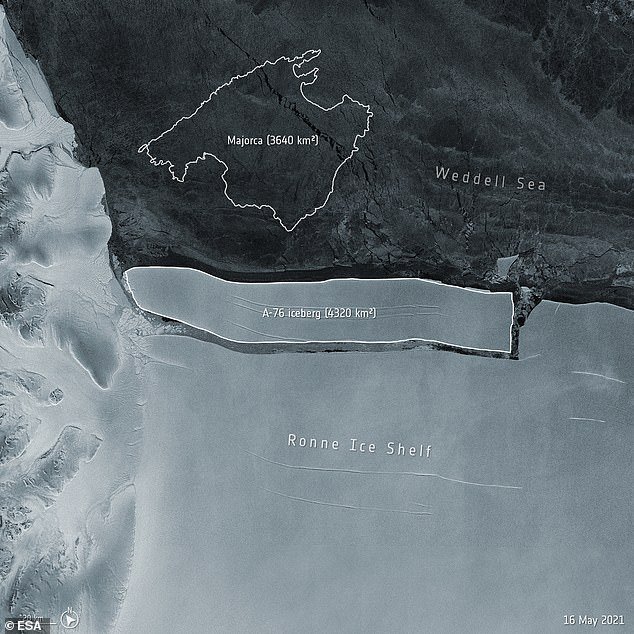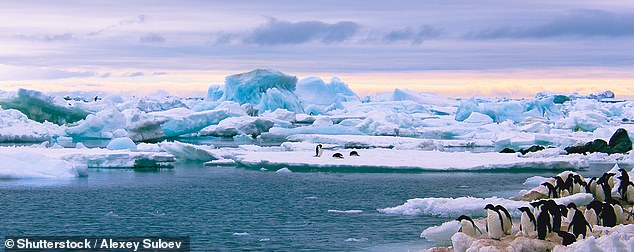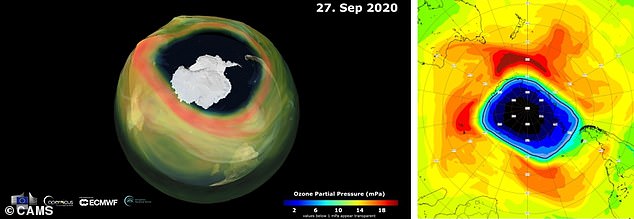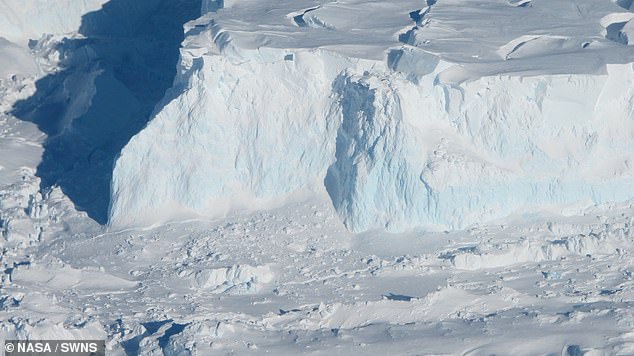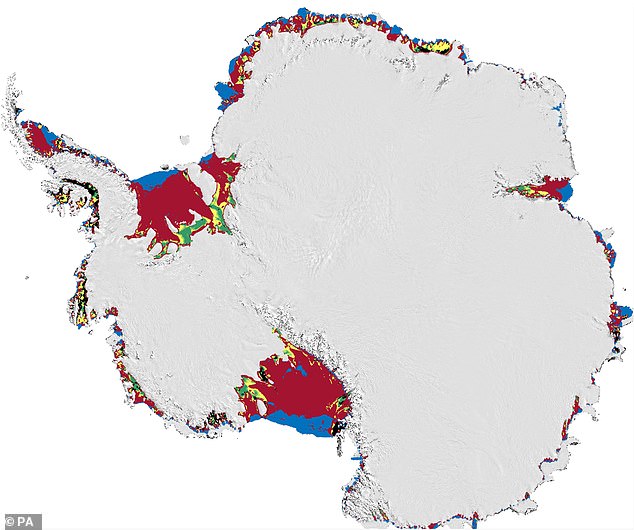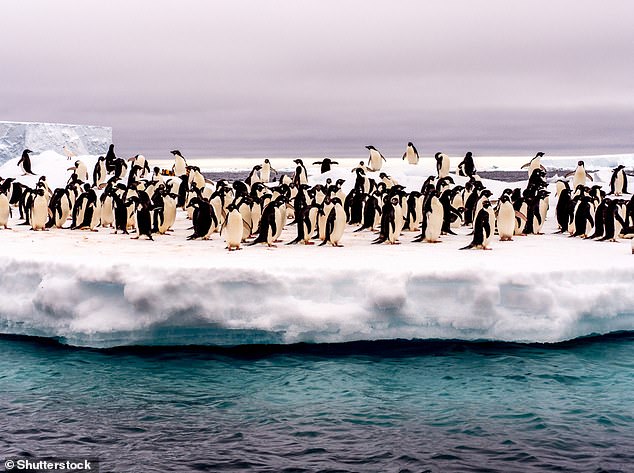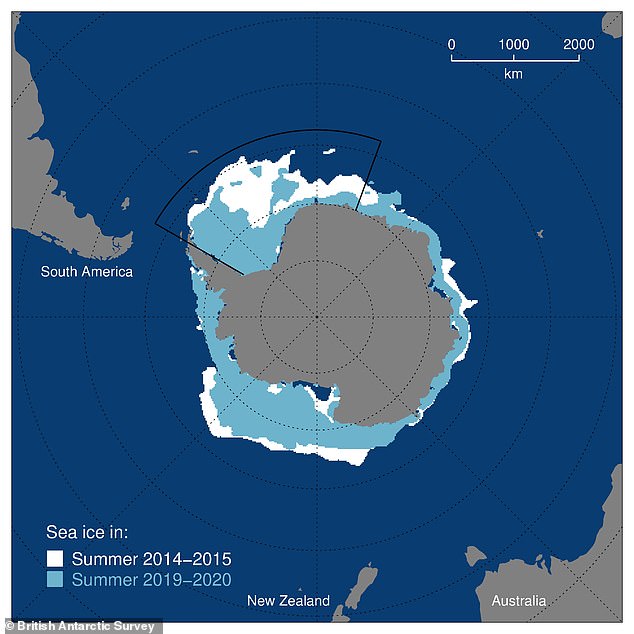World’s biggest iceberg breaks away from the Antarctic ice shelf, European Space Agency reveals
Meet the world’s biggest iceberg: Huge 1,667 square mile block that’s even bigger than MAJORCA has broken away from the Antarctic ice shelf, European Space Agency reveals The massive block of ice broke off from the Ronne Ice Shelf in the Weddell Sea It is 105 miles long by 15 miles wide and was spotted … Read more
